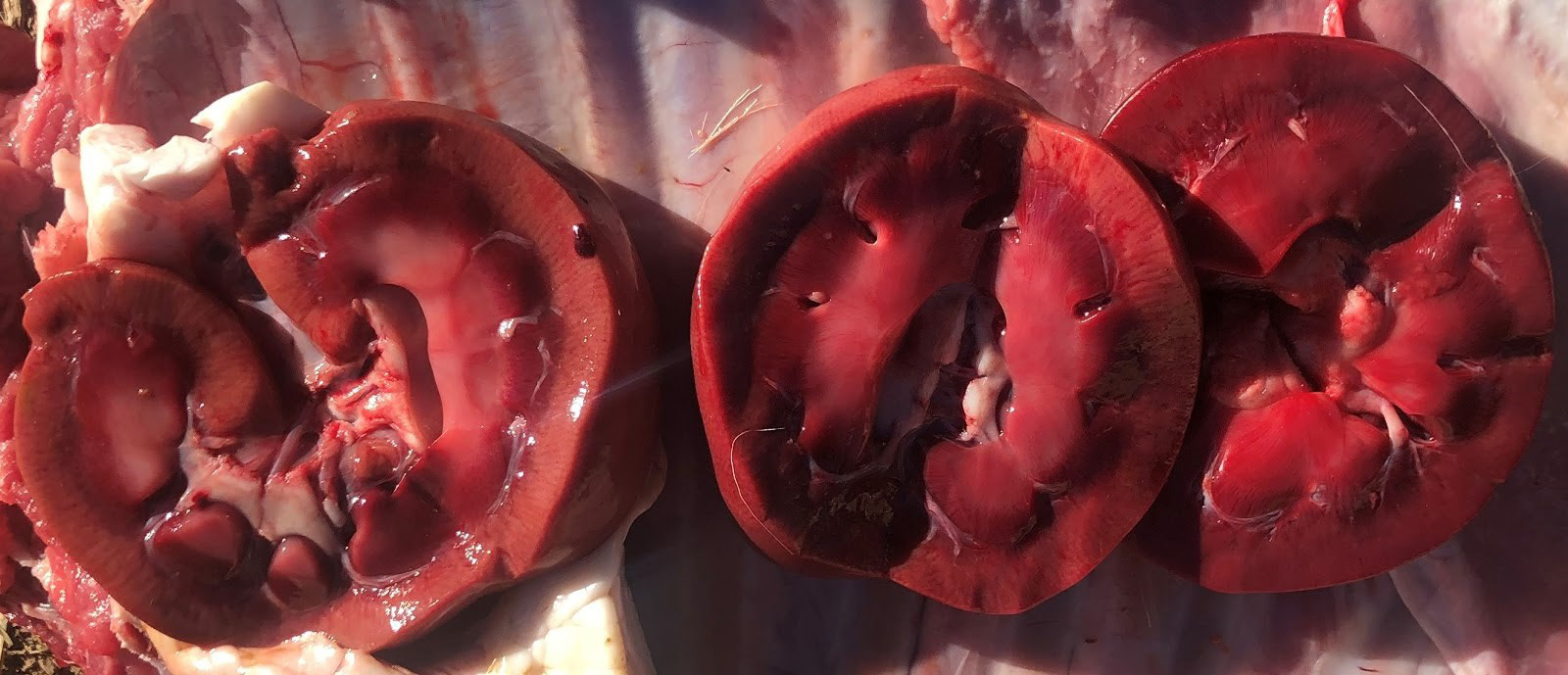Pulpy kidney
Pulpy kidney, also known as enterotoxaemia, can affect sheep, goats, and cattle on high carbohydrate, energy-rich feed. Overgrowth in the gut of bacterium Clostridium perfringens releases epsilon toxin which causes sudden death.
There is no treatment for pulpy kidney. A vaccination program with 2 doses 4-6 weeks apart initially, and then a regular booster provides protection.
What is pulpy kidney?
Pulpy kidney (enterotoxaemia) is a clostridial disease that effects sheep, goats, and cattle grazing lush, fast-growing pastures or moving on to a high carbohydrate diet.
Pulpy kidney usually manifests in young, fast growing animals that are unweaned or recently weaned, particularly lambs.
Pulpy kidney can cause the death of all ages of stock on a lush diet. Fat, healthy livestock in prime condition are particularly susceptible.
What causes pulpy kidney?
Pulpy kidney is caused by an overgrowth of a specific clostridial bacteria, Clostridium perfringens Type D. This bacteria is naturally present in a healthy sheep’s gut as part of normal gut flora. The bacteria produces a toxin, called epsilon toxin, which doesn’t cause a problem at low levels.
A sudden diet change, such as moving livestock to lush pastures or heavy grain feeding, causes rapid multiplication of the bacteria and associated deadly toxin. The toxin is absorbed into the animal’s blood stream which causes significant damage affecting multiple body organs.
What are the symptoms of pulpy kidney?
In unvaccinated animals, pulpy kidney results in very sudden death, often following terminal convulsions.
There may be no prior signs of sickness nor evidence of struggling. Affected livestock are simply found dead. The carcass blows up and starts to putrefy rapidly. Diagnosis can be readily made post-mortem.
In livestock with some immunity from previous vaccination, illness may be slightly more drawn out, but there is no treatment and affected animals will die.
The image below shows normal goat kidney colour on the left compared to two kidneys from goats with pulpy kidney. Note the deep red colour with no distinction between sections of kidney.

How to treat pulpy kidney?
Unfortunately there is no specific treatment for pulpy kidney. For valuable animals treatment can be attempted but the results are seldom favourable.
How to prevent pulpy kidney?
Pulpy kidney is easily and cheaply prevented by effective clostridial vaccination. An initial two vaccinations are required 4-6 weeks apart for effective protection, but timely boosters are crucial, and may be necessary up to every three months while on high risk feed.
The better your lambs and calves are doing the more imperative it is to give a booster – pulpy kidney strikes the best stock.
It is important to include a source of roughage in the diet and be mindful of the health risks of putting stock onto crops.
Vaccinating against clostridial diseases
Stock that have never been vaccinated before (including new purchased stock and young lambs/calves) need two doses of vaccine 4-6 weeks apart. For lambs and calves, these are normally given at marking and weaning. These two initial vaccinations are then followed up with booster vaccinations.
Vaccinating your pregnant ewes and cows will provide newborn lambs and calves passive immunity against clostridial disease through antibodies found in colostrum. This immunity will diminish over time and does not count as the lamb’s/calf’s first dose.
Young stock need to receive two injections, with full immunity reached two weeks after the second vaccination.
How often do you need to vaccinate for pulpy kidney?
While immunities for tetanus and black disease are generally considered to be long lasting, immunity against pulpy kidney is relatively short. Boosters for pulpy kidney should be timed to occur at least two weeks prior to grazing lush, fast-growing pasture or grain feeding.
Some vaccines claim 12-month protection in a fully immunised animal against pulpy kidney. However, immunity weakens the longer it has been since a vaccination booster. In extremely high-risk situations, it is recommended that livestock have had a booster in the previous six months to ensure that they are protected (three months in extremely high-risk conditions).
In situations where these high-risk periods are continuous, you may need to provide vaccination boosters every 3-6 months. Always follow the recommendations on the vaccine label, particularly regarding use and storage. It is especially important that the vaccine doesn’t overheat as this can stop it working correctly.
Types of clostridial vaccines
There are a lot of different vaccines that include protection against pulpy kidney.
Clostridial vaccines can be found in 3-in-1, 5-in-1, 6-in-1 or 7-in-1 and Tasvax 8-in-1 vaccine products for sheep and cattle. The difference between these being which other diseases they also protect against.
What is the best vaccine for pulpy kidney?
5-in-1 vaccines can be used in both sheep and cattle. They cover the five main clostridial diseases. In high challenge situations, a booster vaccination may need to be given every three months. Cost of vaccinating sheep with a 5-in-1 is around $0.25 per dose and $0.50 per dose for cattle.
6-in-1 vaccines are only used in sheep. They cover the five main clostridial diseases, plus cheesy gland.
Although less commonly available, 3-in-1 vaccines provide protection against pulpy kidney, tetanus and cheesy gland in sheep.
7-in-1 vaccines are used in cattle. They cover the five main clostridial diseases plus two types of leptospirosis. Cost of vaccinating cattle with a 7-in-1 is around $2.35 per dose.
Tasvax 8-in-1 provides protection for the main clostridial diseases as well as other less common ones but does not cover cheesy gland in sheep or leptospirosis in cattle. Cost of vaccinating sheep with a Tasvax 8-in-1 is around $0.37 per dose and $0.93 per dose for cattle.
When deciding on which vaccine you should choose, it comes down to knowing what other livestock diseases you want to protect against. Where there is any risk of clostridial disease on your property, vaccination is extremely cost-effective and worthwhile in preventing disease in your flock and/or herd.